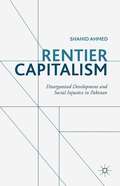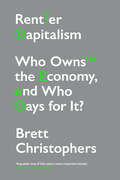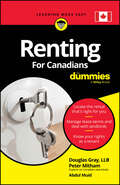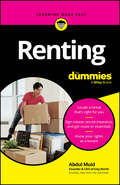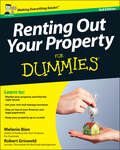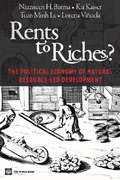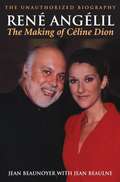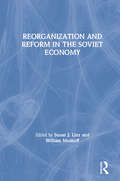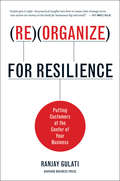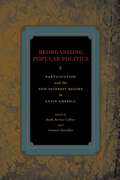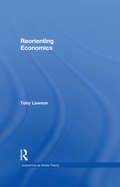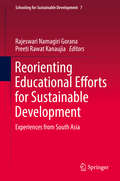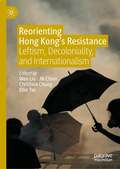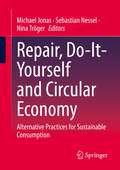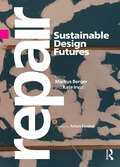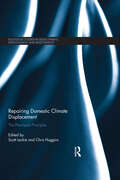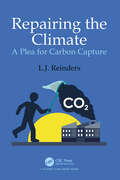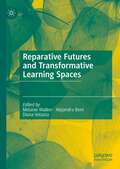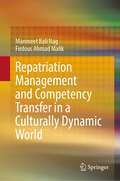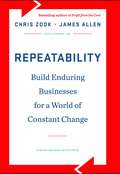- Table View
- List View
Rentier Capitalism: Disorganised Development and Social Injustice in Pakistan
by Shahid AhmedSince the early 1950s East Asia (China, Taiwan and South Korea) and South-East Asia (Indonesia, Malaysia, Thailand and Vietnam) have, despite war and other challenges, managed to transform the lives of their people, whereas South Asia (India, Pakistan, Bangladesh and Sri Lanka) has lagged behind. The success of East and South-East Asia has not been accidental – it has been driven by action to reduce rural poverty, by the provision of decent education and health services to the people, and by high quality physical and institutional infrastructure, such as roads, ports and railways, and targeted support from the State to develop particular industries. In contrast, Pakistan has never confronted the problem of rural poverty, nor invested in public services. This failure is a reflection of the power of the landed class and its urban allies. This has now taken the form of widespread rent-seeking in the economy with the country's ruling elite sharing out the spoils amongst themselves rather than taking measures to grow the size of the economy so that all might share in the resulting prosperity.
Rentier Capitalism: Who Owns the Economy, and Who Pays for It?
by Brett ChristophersHow did Britain&’s economy become a bastion of inequality?In this landmark book, the author of The New Enclosure provides a forensic examination and sweeping critique of early-twenty-first-century capitalism. Brett Christophers styles this as &‘rentier capitalism&’, in which ownership of key types of scarce assets—such as land, intellectual property, natural resources, or digital platforms—is all-important and dominated by a few unfathomably wealthy companies and individuals: rentiers. If a small elite owns today&’s economy, everybody else foots the bill. Nowhere is this divergence starker, Christophers shows, than in the United Kingdom, where the prototypical ills of rentier capitalism—vast inequalities combined with entrenched economic stagnation—are on full display and have led the country inexorably to the precipice of Brexit. With profound lessons for other countries subject to rentier dominance, Christophers&’ examination of the UK case is indispensable to those wanting not just to understand this insidious economic phenomenon but to overcome it.Frequently invoked but never previously analysed and illuminated in all its depth and variety, rentier capitalism is here laid bare for the first time.
Renting For Canadians For Dummies
by Peter Mitham Douglas Gray Abdul MuidUseful guidance at all stages of the renting process Renting For Canadians For Dummies helps soon-to-be renters feel confident navigating the multi-step renting process. Inside, you'll learn how to find a place that works for your needs and budget, get your security deposit back when you move out, and everything in between. In straightforward language, this book helps you feel prepared for any surprises that might crop up during the renting process. Real-life scenarios and realistic advice make this an essential resource that you can turn to time and again for reliable, comprehensive renting advice. Find safe, legitimate rental property listings, and avoid overpriced rentals and scams Get Canada-specific information for dealing with application criteria, negotiating a lease, securing tenancy insurance, and advocating for yourself Learn what makes condo living different for tenants—and sometimes better! Discover creative ideas for sprucing up your new space, without knocking down any walls Anyone in Canada who needs a refresher on the complex renting process can find the information they need in this book.
Renting For Dummies
by Abdul MuidUntangle the renting process and find your perfect place Renting For Dummies explains everything you, as a renter, need to know. Search for the ideal home, put in your application, and get yourself moved in. You’ll learn how to effectively hunt for rentals, figure out what you can afford, and how to find the neighborhood that’s best for you. Want to find a roommate? Need help with your application? Not sure whether your lease allows you to keep your beloved pet goldfish? This Dummies guide has you covered, with all the renting advice, and none of the confusing babble. Streamline the renting process with tips on finding good rentals Read real-life scenarios to help you navigate roommates, pets, applications, and beyond Ask the right questions and negotiate a lease that’s fair to everyone Get tips for maintaining your place, setting up utilities, and handling repairsIf you want to get up to speed on today’s rental landscape, Renting For Dummies is the jargon-free resource for you.
Renting Out Your Property For Dummies
by Griswold Melanie BienEverything potential landlords need to know about the UK rental marketRenting Out Your Property For Dummies is the essential roadmap to successful property letting. This easy-to-read guide walks readers through every step of renting out their property - showing how to avoid legal problems, find and keep the best tenants, maintain the property and maximise their rental income. As well as lots of helpful advice, it contains a wealth of sample forms and standard letters that can be used when dealing with their own tenants. Crucially, it is fully up to date on all the latest legislation including the Tenancy Deposit Scheme and Energy Performance Certificates (EPCs).Renting Out Your Property For Dummies covers:How to prepare a rental property for prospective tenantsTackling rent, deposits and tenancy agreementsDeciding whether to manage the property yourself or to hire an agentEssential information on financial management and record-keeping
Renting Out Your Property For Dummies
by Melanie Bien Robert S. GriswoldAdvice on profitable strategies, problem tenants, UK legal issues, and more! Minimise rental headaches and maximise cash flow - without agent's fees Whether you want to become a property tycoon or just rent out a second home, this guide to the UK rental market is your roadmap to success. Now fully updated with extra coverage on tax issues and company formation, let successful landlords Melanie Bien and Robert Griswold show you how to buy the right property, avoid legal problems, retain the best tenants, and maximise your rental income. Praise for Renting Out Your Property For Dummies "This book is a comprehensive guide to the process of renting out your property, brim full of sound practical advice based on years of experience. It's an absolute must for the bookshelf of any would-be landlord, novice and experienced alike." —Tom Entwistle, Editor of the rental property Web site, www.LandlordZONE.co.uk Discover how to Market your property and screen tenants Set the right rent and manage increases properly Master maintenance issues, from DIY to 'contractor dream team' Stay on top of your finances and record keeping
Rents to Riches? The Political Economy of Natural Resource-Led Development
by Naazneen H. Barma Kai Kaiser Tuan Minh Le Lorena ViñuelaThis volume focuses on the political economy surrounding the detailed decisions that governments make at each step of the value chain for natural resource management. From the perspective of public interest or good governance, many resource-dependent developing countries pursue apparently short-sighted and sub-optimal policies in relation to the extraction and capture of resource rents, and to spending and savings from their resource endowments. This work contextualizes these micro-level choices and outcomes.
René Angelil: The Unauthorized Biography
by Jean Beaunoyer Jean BeaulneFor almost twelve years, Jean Beaulne was a member of the Baronets "the Beatles of Quebec" along with René Angélil. In this book, he has collaborated with writer and journalist Jean Beaunoyer to tell the untold story of René Angélil and Céline Dion. Previously unknown details of René Angélil’s personal and professional life are revealed in this unprecedented investigation into the man who orchestrated one of the foremost successes in the history of show business.
Reorganization and Reform in the Soviet Economy
by William Moskoff Susan J. LinzRichly represented in the Russian folktale tradition, the legends in this work are religious tales in a peasant village setting. Among the standard themes is the return of Christ, who wanders through rural Russia with his disciples. Satan appears too, as do a cast of spirits and lesser devils.
Reorganize for Resilience
by Ranjay GulatiIn an era of raging commoditization and eroding profit margins, survival depends on resilience: staying one step ahead of your customers. Sure, most companies say they're "customer-focused," but they don't deliver solutions to customers' thorniest problems. Why? Because they're stymied by the rigid "silos" they're organized around. In Reorganize for Resilience, Ranjay Gulati reveals how resilient companies prosper both in good times and bad, driving growth and increasing profitability by immersing themselves in the lives of their customers. This book shows how resilient organizations cut through internal barriers that impede action, build bridges between warring divisions, and transform former competitors into collaborators.Based on more than a decade of research in a variety of industries, and filled with examples from companies including Cisco Systems, La Farge, Starbucks, Best Buy, and Jones Lang LaSalle, Gulati exploresthe five levers of resilience:· Coordination: Connect, eradicate, or restructure silos to enable swift responses.· Cooperation: Foster a culture that aligns all employees around the shared goals of customer solutions.· Clout: Redistribute power to "bridge builders" and customer champions.· Capability: Develop employees' skills at tackling changing customer needs.· Connection: Blend partners' offerings with yours to provide unique customer solutions.
Reorganizing Popular Politics: Participation and the New Interest Regime in Latin America
by Samuel Handlin Ruth Berins CollierA historic shift has occurred in the organizational structures through which the lower classes in Latin America express voice and find political representation. With the political and economic reforms of the 1980s and 1990s, networks of community-based associations and nongovernmental organizations replaced party-affiliated labor unions as the predominant organizations to which the lower classes turned. This volume examines the new “interest regime” in Argentina, Chile, Peru, and Venezuela through two extensive surveys—one of individuals and one of associations—undertaken in those nations’ capital cities. Contrary to common perceptions, the new interest regime is neither a vibrant, autonomous civil society nor a set of weak, atomized organizations. Participation in associations is generally high, compared to “direct action” as a strategy for pursuing collective interests, and associations more frequently coordinate and engage the state than has sometimes been assumed. However, various forms of interaction with the state pose a classic trade-off between representation and state control, and the new interest regime is marked by representational distortion, in that the lower classes are less likely to use the new structures than the middle classes. Within these general patterns, distinct national models are emerging. This volume represents the most ambitious and systematic effort to date to examine individual participation and associational life in Latin America and to carry out a cross-national analysis of new forms of political representation.
Reorienting Channels of Distribution
by V. Kasturi RanganTraditionally, distribution channels have been viewed as vertical marketing systems where responsibility was transferred from one layer to the next, like passing a baton in a relay race. Distribution channels in the future are likely to look more like horizontal alliances of suppliers and intermediaries, all with the aim of efficiently and effectively addressing customers' real needs. These transitions, driven by an underlying change in the economics of production and distribution, are leading to distinct trends in the distribution industry. This note focuses on three primary trends: hybrid channels, multiple channels, and shorter channels. After exploring the challenges managers face as they reorient their distribution, highlights the effects of such changes on supplier-intermediary relationships.
Reorienting Economics (Economics as Social Theory)
by Tony LawsonContemporary economics is characterized by a mismatch between its methods of analysis and the nature of the world it seeks to interpret. Despite regular economic crises and ongoing critique of the discipline, the drift from political economy into applied mathematics appears to continue unabated. In this book, Tony Lawson advocates a relignment of economics with social reality. In analyzing mainstream economists' misplaced universality, the author places ontology at the heart of a reoriented future in which economics is integrated within the wider human and social sciences.
Reorienting Educational Efforts for Sustainable Development
by Rajeswari Namagiri Namagiri Gorana Preeti Rawat Rawat KanaujiaEducation in South Asia has a renewed agenda which can enable societies to leapfrog development that is sustainable such that the individual is prepared for his/her involvement, responsibility and commitment to local and global discussions of our common future. This book on South Asia will focus on initiatives under the Education for Sustainable Development (ESD) umbrella and discuss the challenges, opportunities, issues and strategies in the countries of the region. It presents these initiatives of Environmental Education/ESD vis-à-vis the administrative, economic, social, cultural and ecological realities of each country at various levels of policy, planning, implementation and evaluation. The discussions in this book extend beyond formal education systems like schools, higher education, pre-service and in-service teacher preparation to community education and education initiatives conceptualized with the goal of sustainability. All initiatives will demonstrate how each country in its own pace contributing to move ESD from the periphery to the core of education initiatives.
Reorienting Hong Kong’s Resistance: Leftism, Decoloniality, and Internationalism
by Wen Liu Jn Chien Christina Chung Ellie TseThis book brings together writing from activists and scholars that examine leftist and decolonial forms of resistance that have emerged from Hong Kong’s contemporary era of protests. Practices such as labor unionism, police abolition, land justice struggles, and other radical expressions of self-governance may not explicitly operate under the banners of leftism and decoloniality. Nevertheless, examining them within these frameworks uncovers historical, transnational, and prefigurative sightlines that can help to contextualize and interpret their impact for Hong Kong’s political future. This collection offers insights not only into Hong Kong's local struggles, but their interconnectedness with global movements as the city remains on the frontlines of international politics.
Repair Your Credit Like the Pros: How Credit Attorneys and Certified Consultants Legally Delete Bad Credit and Restore Your Good Name
by Carolyn WarrenExpanded Edition 2017: Don't be a victim of erroneous credit reporting or mistakes of the past. Take control of your credit by exercising your legal right to clean up your credit and restore your good name. By using the methods modeled by certified credit repair specialists and credit attorneys, you can succeed in repairing your own credit. With a high FICO score, you will qualify for the best financing and save thousands of dollars.
Repair, Do-It-Yourself and Circular Economy: Alternative Practices for Sustainable Consumption
by Michael Jonas Nina Tröger Sebastian NesselRepair & Do-It-Yourself activities on the one hand and discussions about the circular economy on the other hand are currently regarded as promising examples of how current modes of consumption and production can be reorganized and redesigned in the sense of a sustainable society. This volume discusses the relevance, the interactions as well as the possibilities and limits of the aforementioned phenomena of repairing, do-it-yourself and longer use on the one hand and the circular economy on the other, from both a scientific and a practical perspective.
Repair: Sustainable Design Futures
by Markus Berger Kate IrvinA collection of timely new scholarship, Repair: Sustainable Design Futures investigates repair as a contemporary expression of empowerment, agency, and resistance to our unmaking of the world and the environment. Repair is an act, metaphor, and foundation for opening up a dialogue about design’s role in proposing radically different social, environmental, and economic futures. Thematically expansive and richly illustrated, with over 125 visuals, this volume features an international, interdisciplinary group of contributors from across the design spectrum whose voices and artwork speak to how we might address our broken social and physical worlds. Organized around reparative thinking and practices, the book includes 30 long and short chapters, photo essays, and interviews that focus on multiple responses to fractured systems, relationships, cities, architecture, objects, and more. Repair will encourage students, academics, researchers, and practitioners in art, design and architecture practice and theory, cultural studies, environment and sustainability, to discuss, engage, and rethink the act of repair and its impact on our society and environment.
Repairing Domestic Climate Displacement: The Peninsula Principles (Routledge Studies in Development, Displacement and Resettlement)
by Scott Leckie Chris HugginsClimate change, sometimes thought of as a problem for the future, is already impacting people’s lives around the world: families are losing their homes, lands and livelihoods as a result of sea level rise, increased frequency and intensity of storms, drought and other phenomena. Following several years of preparatory work across the globe, legal scholars, judges, UN officials and climate change experts from 11 countries came together to finalise a new normative framework aiming to strengthen the right of climate-displaced persons, households and communities. This resulted in the approval of the Peninsula Principles on Climate Displacement within States in August 2013. This book provides detailed explanations and interpretations of the Peninsula Principles and includes in-depth discussion of the legal, policy and programmatic efforts needed to uphold the standards and norms embedded in the Principles. The book provides policy-makers with the conceptual understanding necessary to ensure that national-level policies are in place to respond to the climate displacement challenge, as well as a firm sense of the programme-level approaches that can be taken to anticipate, reduce and manage climate displacement. It also provides students and policy advocates with the necessary information to debate and critique responses to climate displacement at different levels. Drawing together key thinkers in the field, this volume will be of great relevance to scholars, lawyers, legal advisors and policy-makers with an interest in climate change, environmental policy, disaster management and human rights law and policy.
Repairing the Climate: A Plea for Carbon Capture
by L.J. ReindersClimate change is triggered by a too high concentration of greenhouse gases in the air, carbon dioxide in particular, primarily originating from fossil fuel-burning. Since such burning will not stop any time soon, the concentration will undoubtedly rise further, exacerbating climate change. There is no escape from this. That is where carbon capture comes in: direct air capture (DAC) scrubs the surplus carbon dioxide out of the air for actually lowering this concentration. At the same time emission levels must be drastically lowered by fitting point-source emitters with carbon capture installations. This book sets out the case for such carbon capture, which is a must, without which the climate cannot be repaired.
Reparative Futures and Transformative Learning Spaces
by Melanie Walker Alejandra Boni Diana VelascoThis edited book draws on an international cohort of authors, all working towards sustainable, decolonizing human development for more just futures in a variety of learning spaces. Integrating sustainable human development with ‘reparative futures’, the chapters present diverse examples of how transformative learning spaces can be created through different participatory methodologies and with different stakeholders. The book will be of interest to researchers, graduate students, practitioners and policymakers in the areas of higher education, development studies and transformative innovation.
Repare su crédito ahora (How to Fix Your Credit)
by Luis Cortes Karin Price MuellerUsted no está solo. Alrededor de 51 millones de familias estadounidenses tienen deudas en tarjetas de crédito con un saldo promedio de 12.000 dólares. El problema del crédito es algo que no se debe ignorar. No importa cuánto dinero gane ni dónde viva, si ha cometido errores de crédito en el pasado, esos errores lo perseguirán, a menos que se empeñe en enmendarlos. Y usted puede hacerlo. Controlar su crédito puede ser un asunto complicado, pero el libro Repare su crédito hoy le ofrece un método fácil de seguir para ayudarle durante el proceso. Cualquiera que sea el monto de su deuda, no importa cuán alarmante sea la cifra, puede saldarse, con un poco de planificación y mucha determinación. Cuanto antes comience, más fácil le resultará la tarea. El libro Repare su crédito hoy lo ayuda hoy antes de que su situación empeore mañana.
Reparieren, Selbermachen und Kreislaufwirtschaften: Alternative Praktiken für nachhaltigen Konsum (Kritische Verbraucherforschung)
by Michael Jonas Nina Tröger Sebastian NesselRepair & Do-It-Yourself Aktivitäten auf der einen Seite und Diskussionen über die Kreislaufwirtschaft auf der anderen Seite gelten aktuell als vielversprechende Beispiele, wie derzeitige Konsumtions- und Produktionsweisen im Sinne einer nachhaltigen Gesellschaft reorganisiert und umgestaltet werden können. Der Band diskutiert sowohl aus wissenschaftlicher als auch aus praxisbezogener Perspektive die Relevanz, die Wechselwirkungen wie auch die Möglichkeiten und Grenzen der genannten Phänomene des Reparierens, Selbermachens und Länger Nutzens einerseits und des Kreislaufwirtschaftens andererseits.
Repatriation Management and Competency Transfer in a Culturally Dynamic World
by Firdous Ahmad Malik Manmeet Bali NagThis book examines the relevance of global strategic perspective, as international competition continues to intensify & gain momentum, and management of human resource remains a challenge in contemporary corporate scenario. As global business strategy requires globally competent people and implementation of global human resource systems, therefore the need to harness the multi-faceted dimensions of corporate employees is elaborated upon. This book explores cross cultural movement & interactions in International human resource management, where the theme of cross-cultural reentry remains largely neglected and underestimated in the sojourner’s transition trajectory. This book takes into account the available empirical investigations pointing to substantial concerns, affecting the psychological wellbeing, social readjustment and cultural identity of the returning individuals. This book examines the significance of re-entry as an issue of highest priority to both sojourning individuals as well as people managing the reentry transitions of travelers. In light of the unfolding knowledge revolution, the book explores the context of corporate India offering high knowledge density and rich demographic dividend. The need for companies, to harness the knowledge capital and accelerate Indians in the knowledge revolution is examined. Various factors that can influence the repatriation of an individual when back in the home country, and the challenges faced in repatriation at the individual-, team-, organizational-, and country-levels, is explored & analyzed. This book focuses on eliminating overall wastage and losses in Repatriation process, from an organizational point of view.The purview of this book encompasses the interface of Anticipatory Adjustment, Competency Transfer, Effective Repatriation and Reverse Culture Shock with Repatriates’ Adjustment, back home, and empirically analyzes the precursors and effects of the said paradigms in optimization of Repatriate talent from an organizational perspective. The purpose is to analyze the antecedents of repatriate adjustment in the mentioned context and to subsequently deliberate upon the acquired results to arrive at feasible and relevant conclusions. Optimization of Repatriate talent, and Repatriation Management from International Human Resource Management (IHRM) perspective, deserves a cross-disciplinary study of precursors effecting Repatriation Adjustment, with focus on the dimension of Indian Repatriate acculturation.
Repeatability
by James Allen Chris ZookAn argument for simplicity from the bestselling authors of Profit from the CoreIs radical reinvention the key to winning in today's fast-paced world? Not judging by the results of some of the world's best-performing companies.In Repeatability, Chris Zook and James Allen-leaders of Bain & Company's influential Strategy practice-warn that complexity is a silent killer of profitable growth. Successful companies endure by maintaining simplicity at their core. They don't stray from, or regularly discard, their business model in pursuit of radical renovation. Instead, they build a "repeatable business model" that produces continuous improvement and allows them to rapidly adapt to change without succumbing to complexity.Based on a multiyear study of more than two hundred companies, the book stresses the value of repeatability in business, showing how the "big idea" today is really made up of a series of successful smaller ideas driven by a simple and repeatable business model. Zook and Allen show how some of the world's best-known firms combine a core differentiation model with speed, adaptability, and simplicity to land them at the top for long periods of time. These firms include: Apple, Danaher, DaVita, IKEA, Nike, Olam, Tetra Pak, Vanguard, and others.CEOs, senior executives, managers, and investors all need to read this book. It's the new blueprint for reaching the top-and staying there.
